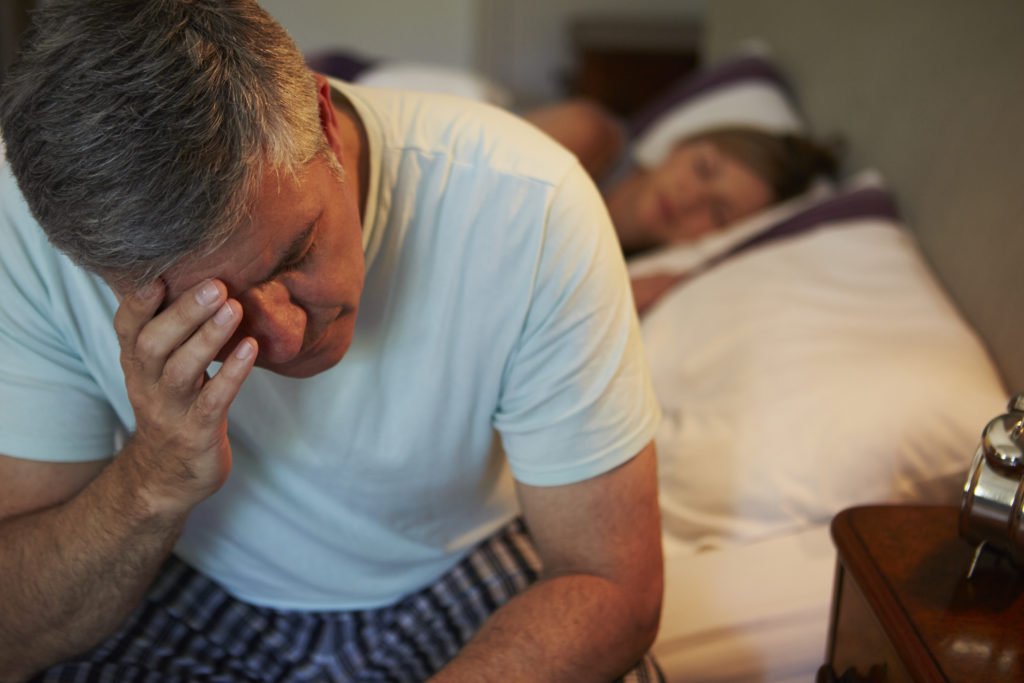How to Improve Insomnia and Sleep Better

About a third of people have occasional sleeplessness, without about ten percent of the population experiencing chronic insomnia. Whether your insomnia is only occasional or whether it is something you deal with every single night, here are a few tips to try to improve insomnia and sleep better.
1. Improve your sleep hygiene.
If you are finding it difficult to sleep on a regular basis, it may because the habits leading up to your bedtime are actually preventing you from sleeping. For example, if you spend hours surfing the internet before trying to go to sleep, you may find it much more difficult to actually get to sleep and stay asleep. If you want to train your body to be better at sleeping when it is time to sleep, keep your sleep schedule regular. Use your bed only for sex and for sleeping (i.e. don’t also use it as your home office or couch), make sure your bedroom is dark and cool, and banish pets and technology from the bedroom.
2. Don’t follow the rules if it helps you sleep.
While most people will find it much more difficult to fall asleep if they are watching television or something on their laptop, this might be exactly what other people need in order to fall asleep. A boring show or an episode that you have seen before and therefore do not have to pay very much attention to might be exactly what you brain needs in order to shut down and actually get to sleep. So while you shouldn’t watch television if it is going to keep you up, if it actually puts you to sleep, don’t be afraid to break this rule occasionally.
3. Create a ritual before bed that helps you relax.
Instead of just jumping into bed and hoping that you will be able to fall asleep quickly, create a ritual that actually starts to calm down your body. This means turning off your electronics about an hour before bed. Take a hot bath or drink something warm and non-caffeinated while you read. If you are kept up by a list of things that you need to get done tomorrow, get up and write those things down so you can stop trying to remember them. All of these things will help you relax and prepare for sleep.
4. Avoid self-medication.
While pills like Advil or Tylenol PM can help you get to sleep if you are experiencing only occasional sleeplessness, they can actually have very negative effects on those who need to use them routinely to get to sleep. These medications are not going to solve the problem, they only delay it and prolong it, especially because they come along with a number of negative side effects, including disorienting you and making you groggy. If you need something to help you get to sleep, try natural melatonin or valerian. If those do not work for you, ask your doctor or therapist for a recommendation before just medicating yourself.
5. Don’t drink alcohol to make yourself drowsy.
A few glasses of wine might make you feel sleepy, but the sleep that alcohol creates is not going to be restorative. You’ll find yourself waking up a lot and you might end up with even an acute hangover the next day, which will be just as annoying to deal with as not having gotten enough sleep. Many people labor under the misconception that alcohol is a good way to get to sleep, but it simply creates more problems than it solves, and it doesn’t even really solve the sleep-related problems.
6. Make sure there is a break in between work and sleep.
If you try to go straight from working (especially if that work requires you to be staring at a computer screen) to sleeping, you are going to find it very difficult to turn your brain off. Decide what time you are going to go to bed and then stop your work day at least a half hour before your bedtime. Again, write down all of the things that you might be worrying about while lying in bed, so you can worry about them in the morning, after you’ve had a good night’s sleep. Understand that after a certain point, especially if you are tired, there is nothing you can do tonight that will not be easier to do tomorrow morning. Creating separation between work and sleep will allow your brain to decompress and prepare to be shut off.
7. Don’t turn small problems into catastrophes.
It might be annoying that your coworker did not get back to you about the status of an important project, but there is nothing you can do about it while you are lying in bed trying to get to sleep. Simply worrying about things that you cannot control or over-worrying about problems that are actually pretty small and easy to manage will lead you lying awake for hours. Try and push these thoughts out of your mind, instead of focusing on them.
8. Add an exercise regimen to your day.
While it is not a good idea to exercise right before bed (as this boosts your metabolism and quickens your body’s energy-making processes), exercising some time during the day helps to burn of extra calories and energy that might be making it difficult to get to sleep later that night. Studies have shown that people who have a regular exercise routine are more likely to sleep deeply the following night.
If you are having chronic problems falling asleep or staying asleep, consider talking with a therapist. Sometimes medical problems can be the catalyst for sleep problems while other times excessive worrying, tension in the body and current stressors are the cause. At my practice I work one on one with clients to address insomnia, reviewing current sleep hygiene patterns and making adjustments to improve sleep quality and quantity. Schedule your first appointment today.
Leave a Reply